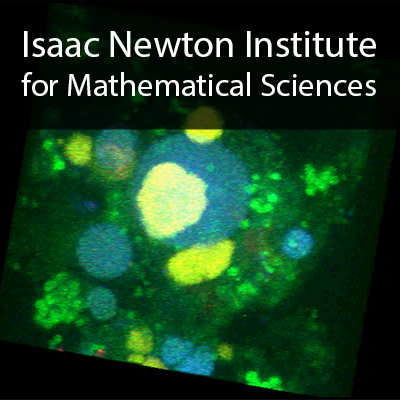Plenary Lecture 11: The evolution of groups and microbial collectives
31 mins 28 secs,
456.92 MB,
MPEG-4 Video
640x360,
29.97 fps,
44100 Hz,
1.93 Mbits/sec
Share this media item:
Embed this media item:
Embed this media item:
About this item

| Description: |
De Monte, S (École Normale Supérieure)
Friday 31 October 2014, 11:25-11:55 |
|---|
| Created: | 2014-11-06 09:32 |
|---|---|
| Collection: | Understanding Microbial Communities; Function, Structure and Dynamics |
| Publisher: | Isaac Newton Institute |
| Copyright: | De Monte, S |
| Language: | eng (English) |
| Distribution: |
World
|
| Explicit content: | No |
| Aspect Ratio: | 16:9 |
| Screencast: | No |
| Bumper: | UCS Default |
| Trailer: | UCS Default |
| Abstract: | Co-authors: Thomas Garcia (IBENS, Paris), Paul Rainey (NZIAS, Auckland/MPI, Ploen)
Microbial populations display a number of collective forms of organization, some of which have been integrated into complex life cycles. For instance, clusters or flakes of cells confer protection against stress to yeast and bacteria, swarming powers collective foraging in Myxobacteria, and recurrent aggregation of sparse cells allows the development of fruiting bodies in Myxobacteria and social amoebas. In this talk, I will present different ways natural selection can drive the evolution of groups composed of replicating particles. In particular, I will focus on settings when collectives are composed of particles of two types, which provide different contributions to collective functionality. A classical conundrum associated with such systems is that functional collectives exist, in spite of the disruptive effects of free-riding on groups composed of cooperative particles. I will use mathematical models that take explicitly into account the process of group formation to show that the evolution of functional collectives can stem from simple features of the composing particles, such as differential stickiness. However, something more is required if selection is to shift to the collective level. In concluding, I will discuss the value of a mechanistic perspective on the evolutionary emergence of multicellular life forms. |
|---|---|
Available Formats
| Format | Quality | Bitrate | Size | |||
|---|---|---|---|---|---|---|
| MPEG-4 Video * | 640x360 | 1.93 Mbits/sec | 456.92 MB | View | Download | |
| WebM | 640x360 | 791.83 kbits/sec | 182.59 MB | View | Download | |
| iPod Video | 480x270 | 522.06 kbits/sec | 120.32 MB | View | Download | |
| MP3 | 44100 Hz | 249.74 kbits/sec | 57.62 MB | Listen | Download | |
| Auto | (Allows browser to choose a format it supports) | |||||

